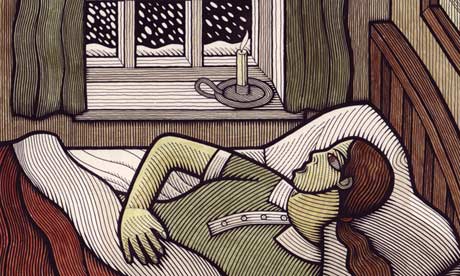Our book starts, it would seem in November 1930, in a Munich café. Although, now this is my second read, I wonder if this is the beginning or the end? What do we want it to be?
Never mind, jumping around in time is typical of Kate Atkinson's work and presenting the reader with various strands of possibilities is peculiar to Life After Life.
The German based thread of Ursula's life is picked up later on. After this pastry filled beginning worthy of a spy thriller, we are taken to a crucial date, revisited various times in this novel:
11 February 1910
Here is where the whole crux of the matter starts, the gimmick of this story if you like. How a shift in circumstance can have tremendous repercussions. A baby dies. A baby lives. A repellent dictator is disposed of before he has a chance to inflict misery on millions. We'll leave the wider consequences of that particular possibility for later. For the moment we are given the opportunity to get to know Ursula, her family and the general household.
As ever with Atkinson, stories are told and characters drawn in a word, in a sentence.
In these early chapters we are introduced to:
- Sylvie: - even her name oozes luxury - Ursula's mother
- Hugh: Ursula's father, and his sister Isobel
- Maurice and Pamela: her brother and sister
- Dr Fellowes: both not present and present
- Bridget: unswervingly the same in all strands of existence
- Mrs Glover: "cook" and her son George
- Alice: parlour maid
- Mrs Haddock: midwife who never makes it to Fox Corner


I´ve found out information about events in 1930 (November) in Germany and Friedrich Wolf´s wrote "Die Matrosen von Cattaro" in this date.
ReplyDeleteIn chapter 1 (BE YE MEN OF VALOR) I´m not sure if the events are real or it´s a dramatic act in a café in Múnich spite of Ursulla´s name appears. I think that "Fuhner" word is a historical reference.
"Ye" archaic english word for "you".
I agree with the commet about Mrs. Glover´s piccalilli; I think that it hides some spicy information......it isn´t a simple cold collation.
The café scene at the beginning of the book could easily have happened, Hitler often made speeches in cafés and salons. Obviously if Ursula had really been there, well... In September 1930 the Nazi party had become the 2nd largest political party
Deletein Germany. They were already attacking Jewish commerces. Ursula had to choose her moment carefully.